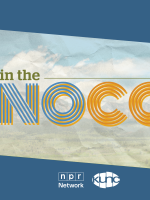Evacuating thousands of people during a natural disaster is a lot more complicated than simply telling everyone to move to safety.
A wildfire or tornado in Colorado, or the hurricanes that recently struck the southeast U.S., often hit vulnerable populations especially hard. Elderly folks, people with disabilities, or people who can’t afford to quickly pick up and leave have a more difficult time getting out of harm’s way.
Carson MacPherson-Krutsky is a researcher with the Natural Hazards Center at the University of Colorado Boulder. In a new study, Carson laid out what she’s learned about how communication during natural disasters helps save lives – or, in some cases, fails to help. She conducted the study in part because officials with the Federal Emergency Management Agency (FEMA) wondered why more people didn’t take advantage of shelters it set up during hurricanes.
Carson spoke with ITN’s Erin O’Toole about how she thinks emergency managers should rethink how they warn the public about natural disasters.








